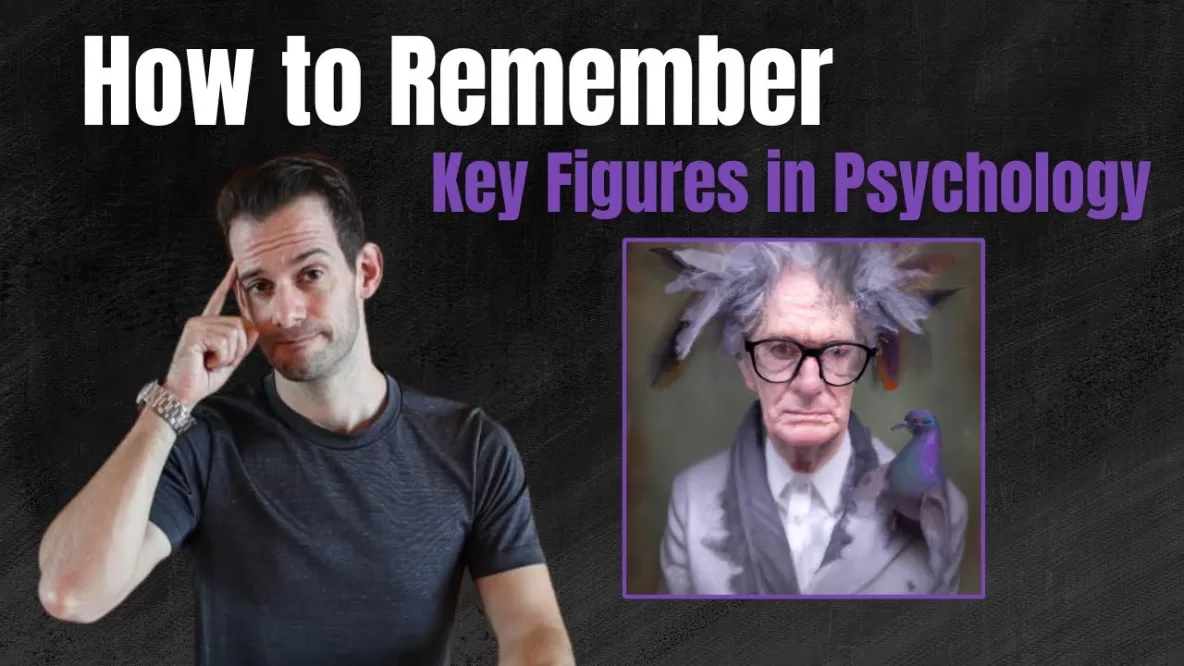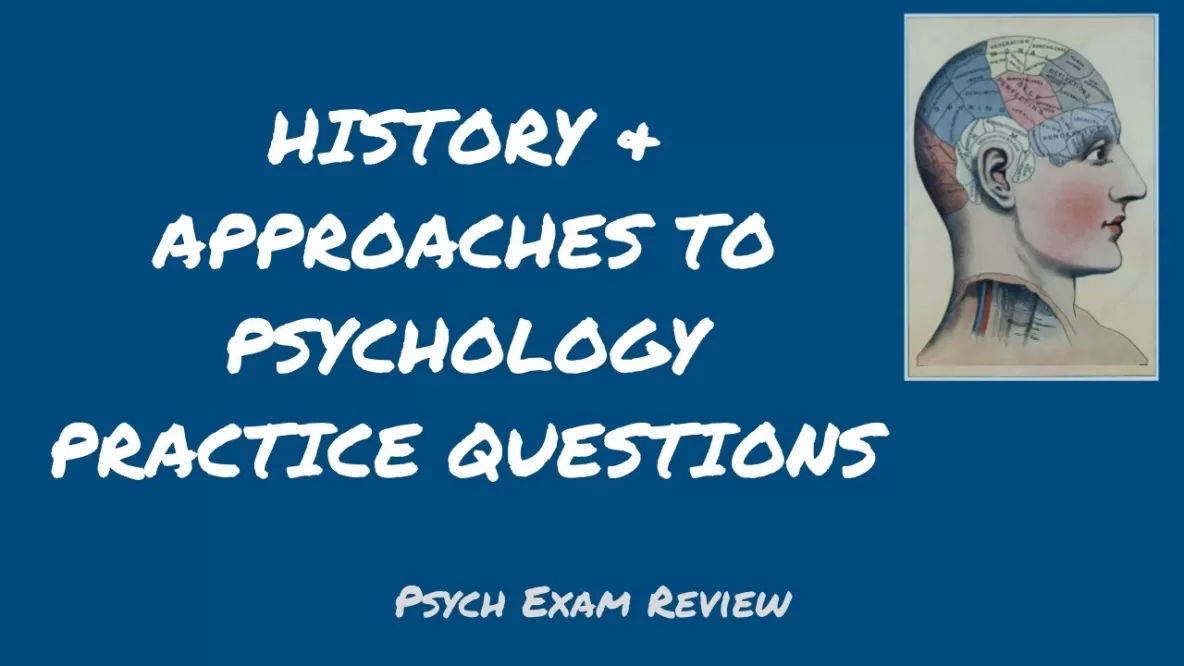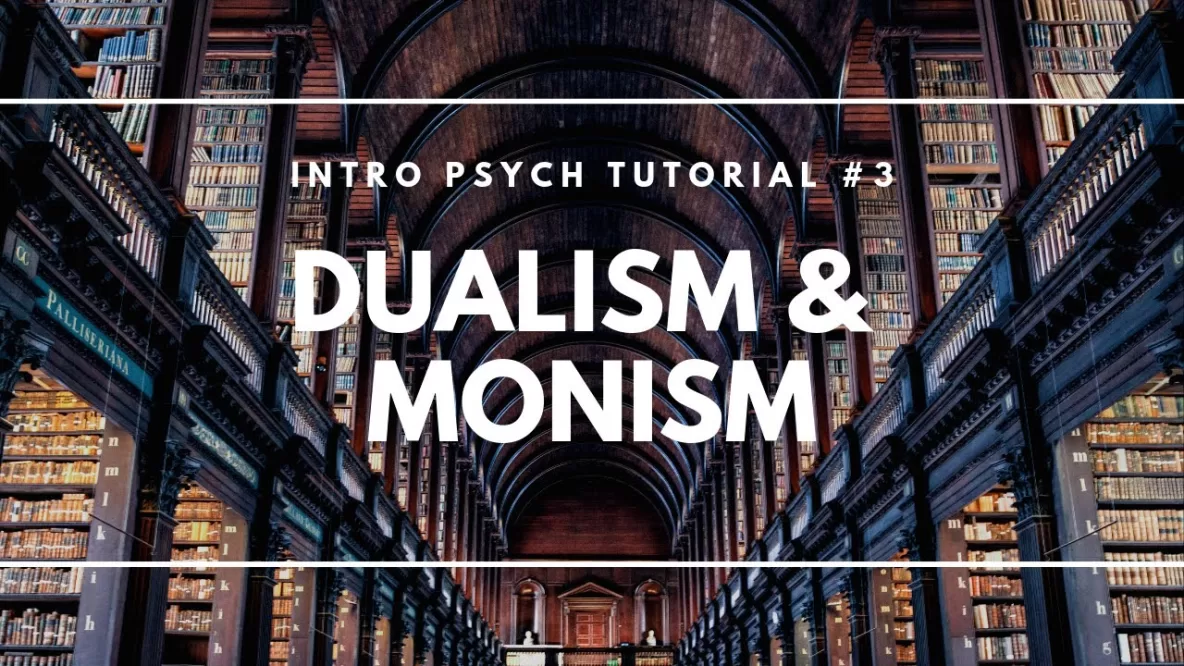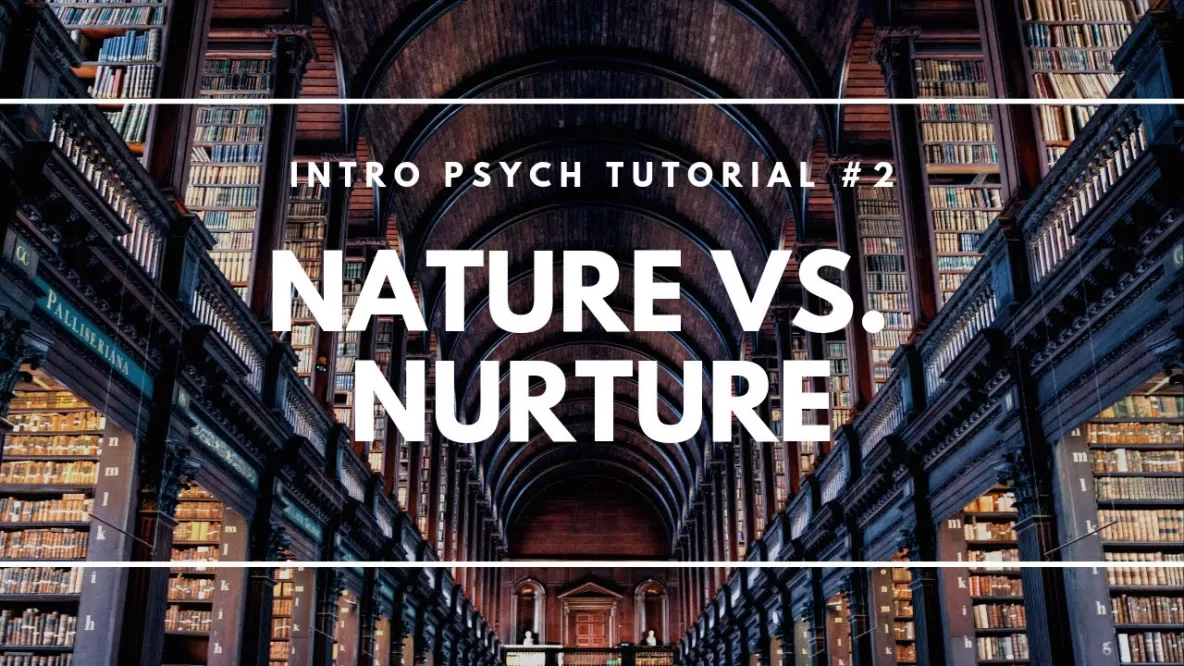In this video I provide example mnemonics, or memory aids, for remembering important names in the history of psychology including Wilhelm Wundt, Edward Titchener, William James, G. Stanley Hall, Mary Whiton Calkins, Margaret Floy Washburn, Sigmund Freud, and B.F. Skinner, … Read More
History & Approaches Practice Questions
I’ve begun creating practice question videos for introductory psychology. I hope that these can help you to test and assess your own knowledge and provide practice retrieving the terms, ideas, and concepts that you’ve learned. You can also find a … Read More
History & Approaches Knowledge Organizer
I’ve begun creating knowledge organizers for introductory psychology which cover all of the most important concepts for each unit. These are one-page summaries which represent information that students are expected to know. The information is organized in a way that … Read More
Structuralism and Functionalism
In this video I describe two early approaches to psychology; the structuralism of Wilhelm Wundt and the functionalism of William James. Don’t forget to subscribe to the channel to see future videos! Have questions or topics you’d like to see … Read More
What is Phrenology?
In this video I discuss phrenology, the work of Franz Josef Gall, and how this pseudoscience had a lasting positive impact on psychology. Don’t forget to subscribe to the channel to see future videos! Have questions or topics you’d … Read More
Dualism and Monism (Intro Psych Tutorial #3)
In this video I discuss dualism, Descartes, monism, and Hermann von Helmholtz to consider why we can’t trust our intuitions about the world. Don’t forget to subscribe to the channel to see future videos! Have questions or topics you’d like … Read More
Nature versus Nurture (Intro Psych Tutorial #2)
In this video I describe the concepts of nativism and philosophical empiricism as well as modern views of the “nature vs. nature debate”. Don’t forget to subscribe to the channel to see future videos! Have questions or topics you’d like … Read More
What is Psychology? (Intro Psych Tutorial #1)
This first video provides a brief overview of what psychology is and describes a few of psychology’s many subfields. Viewers in China can watch this video here: http://v.youku.com/v_show/id_XMTgzNjkxNDUzMg Don’t forget to subscribe to the channel to see future videos! Have questions … Read More
History & Approaches to Psychology – Resources
On this page you’ll find resources covering the history of psychology as well as some of the main approaches for understanding thought and behavior. If I’ve missed a good resource, please share it in the comments section! General Resources History & … Read More
Why Do We Still Learn about Phrenology?
Look in just about any psychology professor’s office and you’re bound to find something like the image above: a model mapping out a person’s “faculties” based on the bumps and dents of the skull. This type of skull study was … Read More
- Page 1 of 2
- 1
- 2







